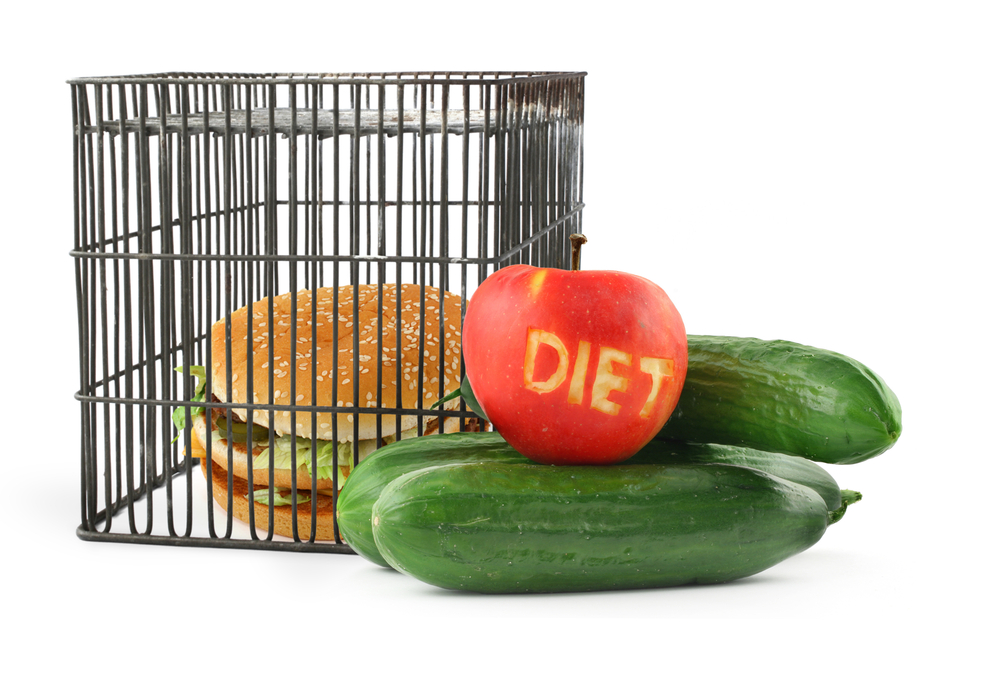Releasing the Diet Prisoner

By Craig T. Hunt RD
Daily, we are bombarded with headlines about losing weight, so much so that losing weight is losing traction. To keep it interesting the media makes it into a contest, like the Biggest Loser, which has many positive aspects, yet for many people sets an unrealistic expectation for losing weight. Contests are exciting, as they can help motivate a person – unfortunately, this is often a short-lived motivation. When a person has attempted to lose weight, and is successful, research shows that the majority of people gain the weight back – often referred to as the Yo-Yo syndrome. In headlines, we also see information regarding “permanent” changes, and somehow the word permanent may sway some us toward a certain diet or supplement. With words like losing and permanent floating around, it’s easy to get snagged by the allure and dream of what that really means for you; and beckons the question – what are we really gaining in this process, and are we just becoming another prisoner to a diet or supplement?
In my private practice I’ve seen intelligent people make not-so-smart decisions about speeding up their weight loss. A patient recently confided to me that she was swayed by advertising to try a supplement that promised to “naturally” boost her metabolism and speed up weight loss. A couple hours after taking the product she landed in the hospital with an irregular heartbeat. What she “gained” from this excursion was an understanding that taking short-cuts to lose weight more rapidly can have dire consequences. Slower weight loss requires patience and helps develop life-long health skills like how to eat when traveling, or how to manage the holidays.
Another patient “cleaned” up her diet so much that she was losing more than two pounds a week for several weeks. I discussed with her that losing ½ to 2 pounds per week is a healthful range, but she was taking an unrealistic short-cut by eating “too cleanly.” I’m not advocating people devour junk food, but totally eliminating all treats is not a sustainable approach. After she had lost nearly 30 pounds in 5 weeks, she felt deprived of her favorite foods, and predictably struggled with managing moderation of her favorite foods. Research shows that when people are deprived of calories their brains strongly begin craving and obsessing about food. This is well-documented with anorexic patients and prisoners of war - and it’s also true for cutting out too many calories and becoming a diet prisoner.
Each time a person takes a short cut to losing weight, then regains the weight, there is a feeling of failure. But in each one of the failures a hard lesson “may” be learned: that we cannot take drastic short cuts to weight loss, be it 6 hours of intense exercise per day, or repeatedly consuming small meals and snacks of tasteless and boring foods to lose weight. Pleasure needs to be part of the equation and we have to learn how to work with it, not blot it out.
By taking time to develop “mindfulness” about eating and lifestyle habits, we begin to gain an important understanding of our body needs. Mindfulness includes having non-food responses to stress, and developing a network of support people to help when life tests our will power.
Lastly, I want to give you a helpful tip about how to include a favorite food, and examples of favorite foods run the gamut. Let’s look at chocolate - since it’s high on many people’s list of favorite foods. Barbara Rolls PhD, professor of Nutritional Sciences at Penn State University, and author of ‘The Volumetrics Eating Plan’, has some excellent advice. She says, “…by eating chocolate as a snack, you may be continually reinforcing your craving for it. To break that cycle, have chocolate at the end of the meal when you are not very hungry. You are less likely to overindulge at that time and you can savor and enjoy its delicious flavor.” You can try this approach with any treat, and help avoid becoming a diet prisoner.
